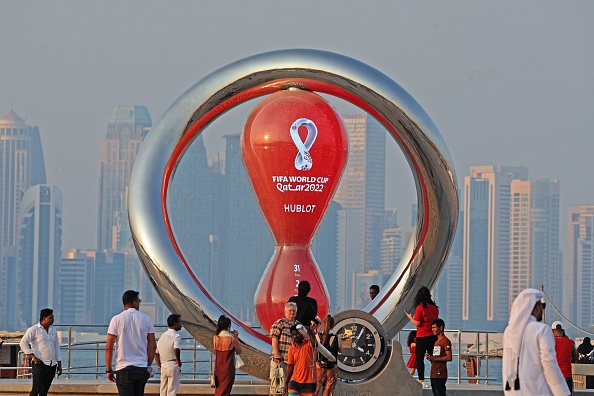UK looks at workers’ rights concessions in Qatar and Saudi trade talks

The UK may demand a commitment to improvements in workers’ rights from Saudi Arabia and Qatar as a part of trade negotiations, according to the UK’s Middle East trade boss.
Simon Penney yesterday told City A.M. that “the ambition is there in Gulf countries” to improve workers’ rights amid claims that thousands of people have died building stadiums for the Qatar World Cup.
The UK recently began post-Brexit trade negotiations with the Gulf Cooperation Council (GCC), which includes Saudi Arabia, Qatar, the United Arab Emirates, Bahrain, Oman and Kuwait.
One of the largest prizes for British negotiators would be to break down some of the barriers preventing City financial and legal services firms from operating in the Gulf.
Labour has previously questioned whether the UK should be dealing with countries like Saudi Arabia and Qatar, which have poor human rights records.
Qatar’s record has been in the spotlight recently, after mounting evidence of poor treatment of immigrant workers helping to build infrastructure for this month’s World Cup.
There have been claims of forced labour and unsafe work conditions, with Amnesty International estimating that more than 6,500 people have died building the country’s stadiums.
Penney, the UK’s Trade Commissioner for the Middle East, said a trade deal with the Gulf could help improve conditions for workers.
“[The GCC] recognises that to be successful on a global stage, they’ll work with us to make sure standards and practices withstand scrutiny globally,” he said.
“It’s a part of our job as a friend and ally to help guide them through that.”
A Department for International Trade spokesperson said: “Protecting and enhancing worker’s rights remains a priority for this government.
“The UK will look to explore, alongside the GCC, how labour provisions within a free trade agreement could support these objectives.”
Other key UK asks in negotiations will include calls for a reduction in tariffs for British food and green energy exports.
However, the largest barriers to trade are due to regulations blocking British companies from operating in the six Gulf countries.
It has been speculated that the GCC will look for promises on UK foreign investment in return for greater market access for City firms.
“A lot of the Gulf countries don’t see themselves as competing in a domestic regional market, they see themselves competing on a global stage,” Penney said.
“If you’re going to compete on a global stage, you need to be competitive, comprehensive and ambitious to a global market. The ambition of the Gulf countries is shared by ours and they see the UK, certainly in financial services, as a natural home.”